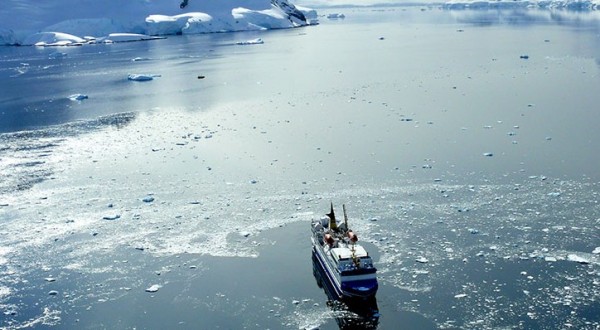A study issued by CPB outlines the effects of the economic shock associated with the opening of the Northern Sea Route
A consequence of melting Arctic ice caps is the commercial viability of the Northern Sea Route, connecting North-East Asia with North-Western Europe. This will represent a sizeable reduction in shipping distances and a decrease in the average transportation days by around one-third compared to the currently used Southern Sea Route.
CPB study on the” Melting Caps and the Economic Impact of Opening the Northern Sea Route” examines the economic impact in a multi-sector model with intermediate linkages. This includes a remarkable shift of bilateral trade flows between Asia and Europe, diversion of trade within Europe, heavy shipping traffic in the Arctic, and a substantial drop in traffic through Suez. These global trade changes are reflected in real income and welfare effects for the countries involved.
The estimated redirection of trade has also major geopolitical implications: the reorganisation of global supply chains within Europe and between Europe and Asia, and the highlighted political interest and environmental pressure on the Arctic.
The commercial use of the Northern Sea Route –if ultimately made possible by further melting of the Arctic icecap– will represent a major development for the international shipping industry.
The NSR represents a reduction of about one third of the average shipping distance and days of transportation with respect to the currently used Southern Sea Route. Roughly 8% of World trade is transported through the Suez Canal and we estimate that two-thirds of this volume will be re-routed over the shorter Arctic route.
These shorter shipping distances are associated with substantial reductions in the transportation and trade costs between two major economic regions: Northeast Asia and Northwestern Europe.
Study estimates that these overall trade costs reductions will increase the trade flows between both regions in average by around 10%, depending on the specific countries involved. This will transform the NSR into one of the busiest global trading routes, which in turn implies heightened economic and geopolitical interests linked to the Arctic and tremendous economic pressure on the countries currently servicing the older SSR (e.g. Egypt and Singapore).
In addition, the NSR will also imply a large volume of trade diversion, that will have a negative economic impact on South and East Europe. Study also finds that there will be –for specific countries and sectors– some significant labour displacement between sectors.
Finally, it is estimated that the NSR will slightly increase CO2 emissions. Although the much shorter shipping distances will reduce the emissions associated with water transportation, these gains are offset by a combination of higher trade volumes and a shift to emission-intensive production in Northeast Asia.
You may read the study by clicking below:
Source: CPB
In the onset, I was outspoken with you propecia before and after has changed my subsistence. It has become much more fun, and now I have to run. Just as it is incredible to sit.





























































